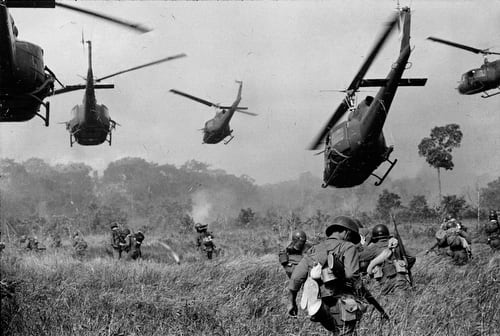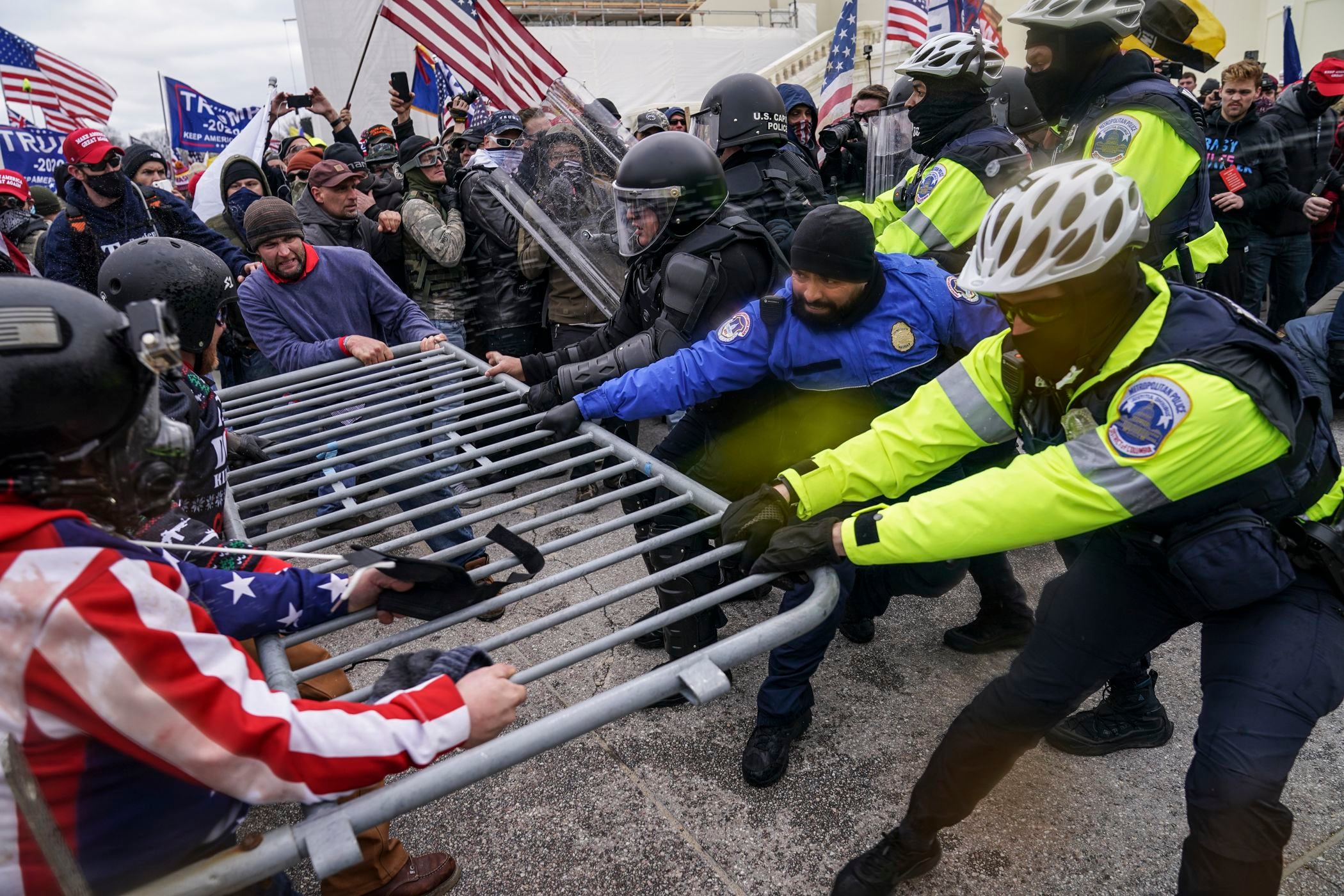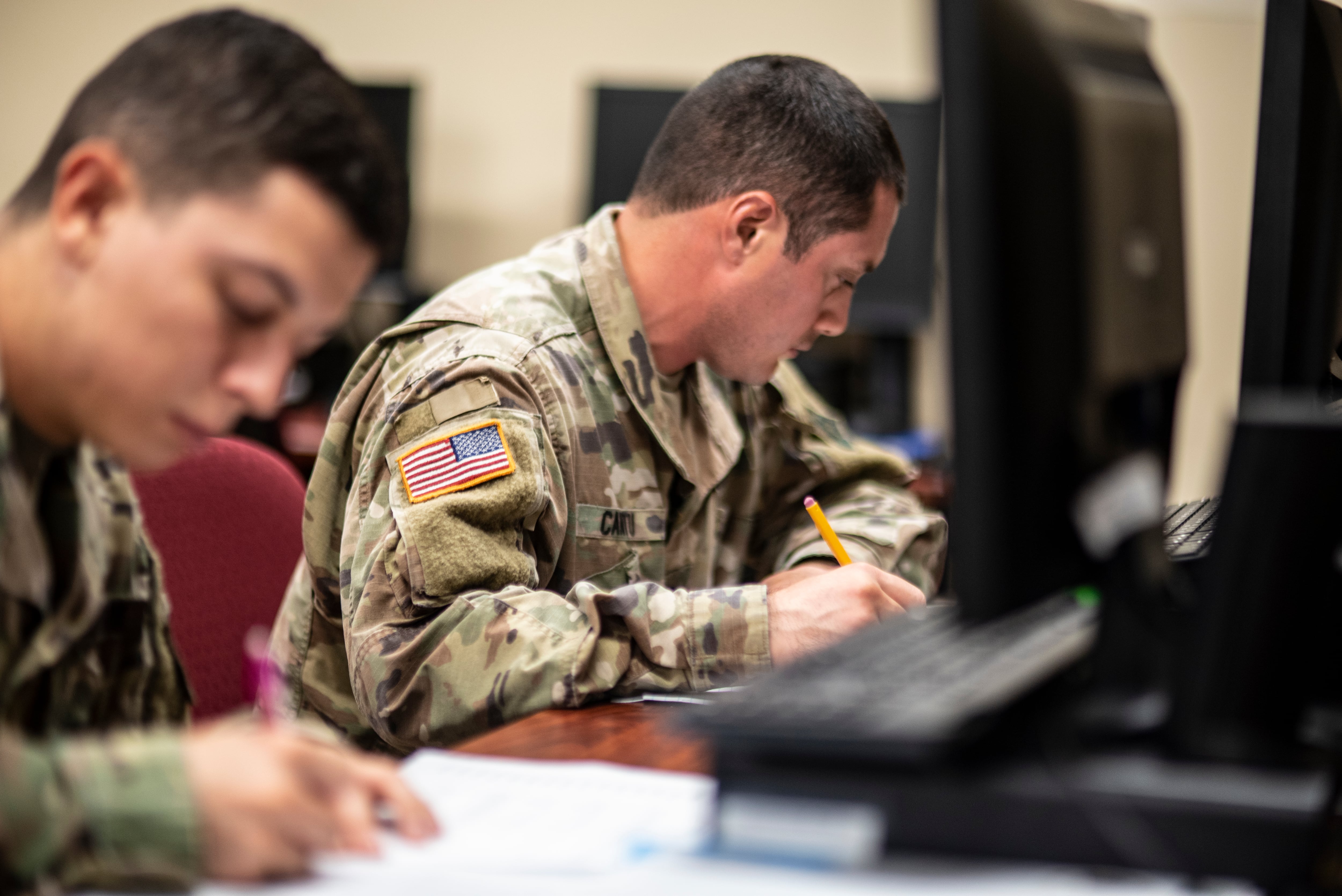Washington, D.C., residents are traumatized and war weary.
Not the sort of weighted fatigue caused by the eternal conflicts being waged in Iraq and Afghanistan.
Out of sight, out of mind.
It is the sheer horror, rather, elicited by occasional helicopters flying to and from bases scattered throughout the region that have become unbearable to those at the mercy of a seemingly interminable rotary blade.
So terrible is the swarm of choppers that some residents of the nation’s capital are likening it to “living in a war zone," according to one local interviewed by the Washington Post, who went on to describe conditions reminiscent of the cataclysmic 'Nam hellscape made famous in “Apocalypse Now.”
Life in the D.C. bush is cruel and unforgiving.
The tuka-tuka-tuka-tuka of helicopters thunder overhead relentlessly, a terrifying interruption of the zen tranquility that comes from ordering a dandelion medley tea and gluten-free banana bread, both considered good for new beginnings.
Charlie lurks each morning in the shadows of the bush ... prior to opening the doors to his opulent Tenleytown neighborhood bistro.
Scanning for VC keeps one’s nerves standing on the edge of a knife, because finding a good venture capitalist in the District can pose a significant challenge.
“Make love, not war” inscriptions adorn many of the helmets worn by Tour de France-style, spandex-wearing cyclists who insist on holding up 4,000-pound vehicles on their way to brunch on the Georgetown waterfront.
All the while, Creedence Clearwater Revival’s “Fortunate Son” plays on an eternal loop.
I love the smell of eggs Benedict in the morning.
Bemoaning the traumatic deafening that comes with owning property in the nation’s capital, one local interviewed by the Post claimed to be subjected to the combative sounds of upwards of eight helicopters per day.
“For me, it brings up a visceral fear reaction,” a Bethesda, Maryland, resident told the Post about the sheer absurdity of hearing helicopter noise despite inhabiting a house adjacent to approximately one million military installations.
“It triggers a primitive response in me, that I have to be wary and protect myself, I have to be on guard.”
Similar is the primal reaction one experiences whenever a fire engine teleports those in vicinity of its siren directly to a hellish California forest fire. Or the sensation of being transported into gridlock traffic or to a hospital emergency department when hearing one of the D.C. area’s many helicopters that serve a number of practical purposes.
In response, some combat-weary residents have begun documenting their traumatic experiences, the Post reported.
One Arlington resident, for example, sprints outside to take a picture each time a helicopter flies overhead.
Time well spent.
Another reportedly keeps a file cabinet filled with newspaper clippings based on helicopter news coverage.
And yet, citizen protests in the form of an occasionally angry Facebook post or a drawer reflecting chopper obsessions have shockingly fallen on deaf ears — or perhaps they’ve just been drowned out by helicopter noise.
Windows “flex in and out,” claimed another resident, who, after reportedly sharing his trials and tribulations with those in his proximity, discovered his neighbor “had been blaming her 7-year-old” for household disturbances, because 7-year-olds routinely cause window-flexing, entire-house-shaking fracas reminiscent of an earthquake.
Who could have predicted residing near Joint Base Myer-Henderson Hall, Fort Belvoir, Washington Navy Yard, Marine Barracks Washington, Joint Base Andrews, Joint Base Anacostia-Bolling, the Pentagon, Marine Corps Base Quantico, Fort Meade, and a bevy of other DoD installations — many of which have been around since the 1800s or World War I — would result in exposure to one of the primary methods of military transport?
Resident responses bring to mind a similar war trauma experienced by journalist, Gersh Kuntzman, who was once plunged into the horrors of war after firing a rifle on a range for the first time.
“It felt to me like a bazooka — and sounded like a cannon,” Kuntzman wrote in the wake of his personal trip through Hades.
“The recoil bruised my shoulder, which can happen if you don’t know what you’re doing. The brass shell casings disoriented me as they flew past my face. The smell of sulfur and destruction made me sick. The explosions — loud like a bomb — gave me a temporary form of PTSD. For at least an hour after firing the gun just a few times, I was anxious and irritable.”
Kuntzman’s distressing experience was reenacted in the harrowing video below.
Bewildered residents of Washington, D.C., meanwhile, remain unsure whether sweet relief from the abominable clamor will ever arrive.
Some are unwilling to wait around to find out, deciding instead to abandon their suburban LZ, uprooting their lives in one multimillion dollar residence for the preference of ... another multimillion dollar residence somewhere else.
Trauma, however, can prove a difficult demon to outrun, something Chris Taylor (Charlie Sheen) knew well in the classic war film, “Platoon," when he specifically discussed Washington’s oversaturated helicopter population.
“I think now, looking back, we did not fight the enemy, we fought ourselves. The enemy was in us," Sheen says.
"The war is over for me now, but it will always be there, the rest of my days.”
J.D. Simkins is the executive editor of Military Times and Defense News, and a Marine Corps veteran of the Iraq War.





